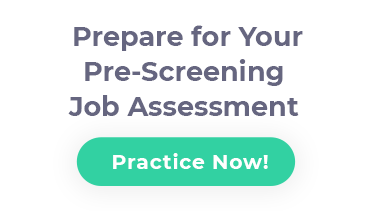Police Written Exam Test Sections – 2025

The hiring process to become a police officer in the United States varies depending on the type of agency, state, county, and other factors. A written exam is one common way that departments determine whether a candidate’s skills are a good fit for the job. You can also expect a background check, physical fitness test, medical and psychological evaluation, and interview.
What Is the Police Written Exam?
There are different standardized tests that police departments use, and some departments customize existing tests. You should be able to confirm ahead of time which test you will need to take. There are also some common aspects of written police exams that you can expect.
The test will probably be timed, with a specific time limit for each topic. The total exam usually takes from one to three hours and includes 100 to 200 questions, depending on the number of skills being tested. The question format is often multiple choice and true or false, although some sections, such as essay and report writing, require you to write out your answer.
Most police stations consider 70% a passing score, while some use a pass/fail scoring system. A higher score is desirable as it can help you stand out among other candidates.
You can expect to see some or all of the following sections on your police officer written test. Note that the names for the different aptitudes can vary; for example, some tests might refer to spelling and grammar as “written expression.”
Reading Comprehension
To demonstrate your reading comprehension, you will need to read an item, such as a short article or report, and answer questions about it. The text you read will usually relate to law enforcement topics. Questions might ask you to choose the most accurate summary of what you read or answer multiple-choice questions about specific information in the passage.
Spelling & Grammar
This section covers skills such as punctuation, word choice, capitalization, and spelling. You may have to choose a sentence from several options that is written either correctly or incorrectly. Some questions might involve choosing a misspelled word from an example sentence.
Vocabulary
Questions on vocabulary sometimes appear in either the reading comprehension or spelling and grammar sections. You may need to identify a synonym or antonym of a particular word or choose the best word to fill in a blank in a sentence. Take a free vocabulary test.
Memory
The memory section involves viewing an image or document for a short amount of time, then answering questions about the image or document without referring back to it. Some tests ask you to view a short video and remember details about what you watched.
Spatial Orientation
There are several question formats that may appear under spatial orientation. You may view a map or building layout and identify the fastest way to get from one location to another. Or, you might observe an object or diagram and then recognize it from a different angle or perspective. This section is sometimes referred to as visualization.
Problem Sensitivity
Questions in this section generally relate to a scenario based on actual situations that police officers face. The scenario will either involve an existing problem or a potential problem, which you must identify. For example, if the scenario involves different witness statements, a problem would be witnesses giving conflicting information. Or if the scenario concerns a suspect’s statement, a potential problem would be the suspect providing false information about a crime.
Deductive Reasoning
In deductive reasoning, you use the information given in the question, such as a series of statements, to form a logical conclusion. You may be asked whether a statement is true or false or if there is not enough information provided to know either way.
Inductive Reasoning
For inductive reasoning, you will take specific information and use it to form an overall conclusion. This is different from deductive reasoning, in which you use general information and narrow it down to a specific conclusion. Inductive reasoning questions may involve making an educated guess based on seemingly unrelated or loosely connected pieces of information.
Information Ordering
This section measures your logical thinking abilities by asking you to place information in a logical order. The information you arrange may be rules or procedures, or a list of numbers, letters, or symbols.
Math/Mathematical Reasoning
This section measures your ability to use essential math functions such as addition, subtraction, multiplication, and division. There may be questions that cover basic geometry, such as determining the area of a shape. The format is often word questions that relate to on-the-job scenarios.
Essay
Many police department exams don’t include an essay section. For the ones that do, you will be asked to respond to one or more questions in writing. The questions often relate to situations police officers encounter on the job. The goal is mainly to test your writing skills, such as grammar and spelling, but you should also make sure to give an accurate and persuasive answer.
Incident Report Writing
For this section, you will need to review a sample incident report and answer questions about it. The questions usually require you to write out your answers in complete sentences with correct grammar. The aim of this section is to measure your attention to detail, reading comprehension, and writing skills.
How to Prepare for Your Police Written Exam?
Most entry-level police exams don’t require prior knowledge or experience with law enforcement. That doesn’t mean you shouldn’t prepare. Practicing ahead of the test, such as with online practice tests, will help you know what to expect and feel confident on test day. It will also help you identify any skills you might want to brush up on. Don’t be discouraged if you don’t get the score you want the first time you take a practice test; the whole point is that you can practice several times until you’re ready for the real deal.
Look for practice tests that cover the test sections listed above. A good practice test will be timed so you can make sure you’re not taking too long on any one question or section. The answers should include an explanation so you can learn from any items you miss and improve your score going forward.
Job openings with police departments usually receive many applications. Careful preparation for your written exam will put you ahead of the pack and increase your chances of landing the job.

